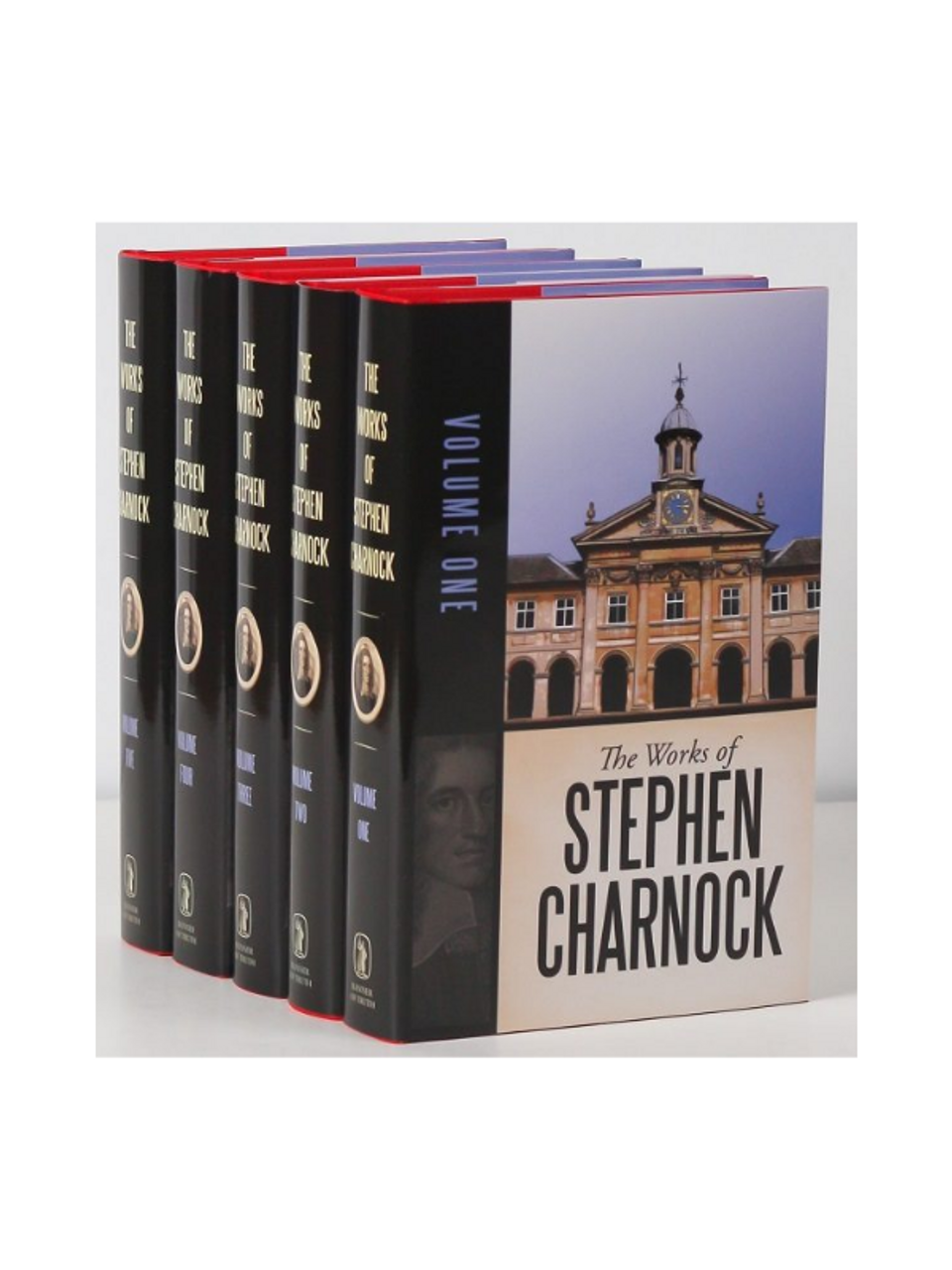Product Description
There were theological and spiritual giants in the earth in the days of the English Puritans, and Stephen Charnock (1628-80) was prominent among them. His Works present a feast of rich teaching and exposition, characterized throughout by sound theology, profound thought, and an imaginative style. The five volumes now reprinted from the classic nineteenth-century Nichol edition contain a total of more than 2,800 pages and 64 distinct discourses or sermons. Of these, only one was published during the author’s lifetime, all the rest being edited from his manuscripts and published by his friends, Richard Adams and Edward Veal, after Charnock’s death in 1680. While expounding timeless truth, Charnock’s discourses are strikingly relevant to contemporary discussions. Then, as now, there were many willing to declare their atheism publicly, who would ‘not only say it in their hearts, but publish it with their lips, and boast that they have shaken off those shackles which bind other men’s consciences’. However, ‘every atheist is a grand fool. If he were not a fool he would not imagine a thing so contrary to…the rational dictates of his own soul, and contrary to the testimony of every creature and link in the chain of creation.’ In the words of J.I. Packer, ‘Charnock has no desire to speculate, but only to declare the works and ways, the nature and character, of the God of the Bible.’
VOLUME ONE contains a helpful introduction to Charnock’s life and work by James McCosh, and the first eight discourses on The Existence and Attributes of God, opening with ‘A Discourse of Divine Providence,’ based on 2 Chronicles 16:9. In this Charnock sets forth the doctrine of providence with great clarity, and then applies it to instruct, comfort, and exhort the people of God.
VOLUME TWO continues and concludes Charnock’s magnum opus, ‘A Discourse on the Existence and Attributes of God’ with the remaining six discourses. Topics include: the existence of God; practical atheism; God’s being a Spirit; spiritual worship; the eternity of God; his immutability; his omnipresence; his knowledge; his wisdom; his power; his holiness; his goodness; his dominion; and his patience. Each discourse first expounds, then applies, the text of Scripture on which it is based.
VOLUME THREE concerns the work of regeneration, by which spiritually dead sinners are raised to new life in Christ. It is perhaps surprising that present-day Christians seem so often to be confused about what it means to be born again. Whatever the reasons for this confusion, the fault cannot be laid at the door of previous generations of preachers and writers, particularly Puritans like Charnock, who took immense pains to search into and explain the doctrine from Scripture.
VOLUME FOUR contains fifteen further discourses of primary importance to Christians in every age. The first six discourses – all on texts from the Gospel of John – focus on the knowledge of God in Christ as the only way to eternal life and happiness, showing that true and saving knowledge of God is only in and by Christ, that conviction of sin by the Spirit of God is the way to this knowledge, and that to remain in unbelief is to remain in misery under the wrath of God. The Lord’s Supper and related matters form the subject of a second group of discourses.
VOLUME FIVE contains a further nineteen discourses. By way of contrast with the earlier volumes – most of which are based on texts from the New Testament – five of the discourses here draw on texts from the Old Testament Scriptures. Many of the topics addressed are of perennial interest to all Christians: the necessity of Christ’s death, and the necessity of his exaltation; Christ’s intercession; God in Christ as the object of faith; afflictions; mortification; the stability of the church; delight in prayer; the sins of the regenerate; man’s enmity to God; and the pardon of sin.
Hardcover, 2805 pages
Publication Date: December 2010
Author
Stephen Charnock was born in London in 1628, studied at Emmanuel College, Cambridge, where he was converted, and preached for a time in Southwark. He undertook further study at Oxford, becoming a Fellow of New College, and later Senior Proctor. He served in Ireland as chaplain to the Governor, Henry Cromwell, and became a popular preacher, being lecturer at Christ Church Cathedral, Dublin between 1655 and 1660, and minister of St Werburgh’s Church. On the Restoration of the monarchy (1660) he returned to London, studying and ministering privately till 1675, when he began a shared Presbyterian pastorate with Thomas Watson at Crosby Hall, Bishopsgate. He died aged 52 in July 1680.








